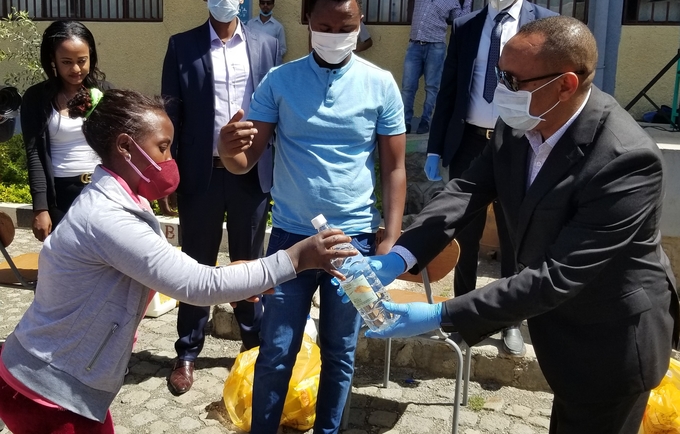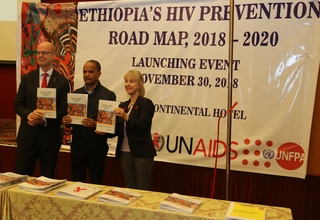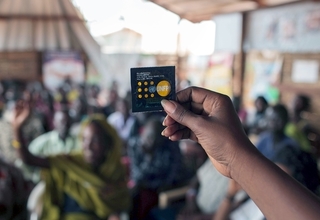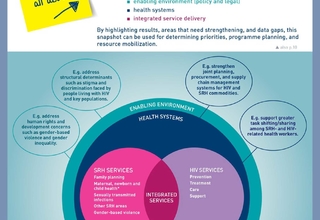UNFPA supported the provision of Personal Protective Equipment (PPE) to more than 500 adolescents and youth as part of its response to the COVID-19 pandemic. The support was coordinated with the Addis Ababa HIV/AIDS Prevention and Control Office, the Consortium of Reproductive Health Associations, and the AIDS Healthcare Foundation.
The support which was provided today targeted the most vulnerable adolescents and youth living with HIV to help them overcome the challenges posed by COVID-19 pandemic, close to one-third of which are HIV positive commercial sex workers.
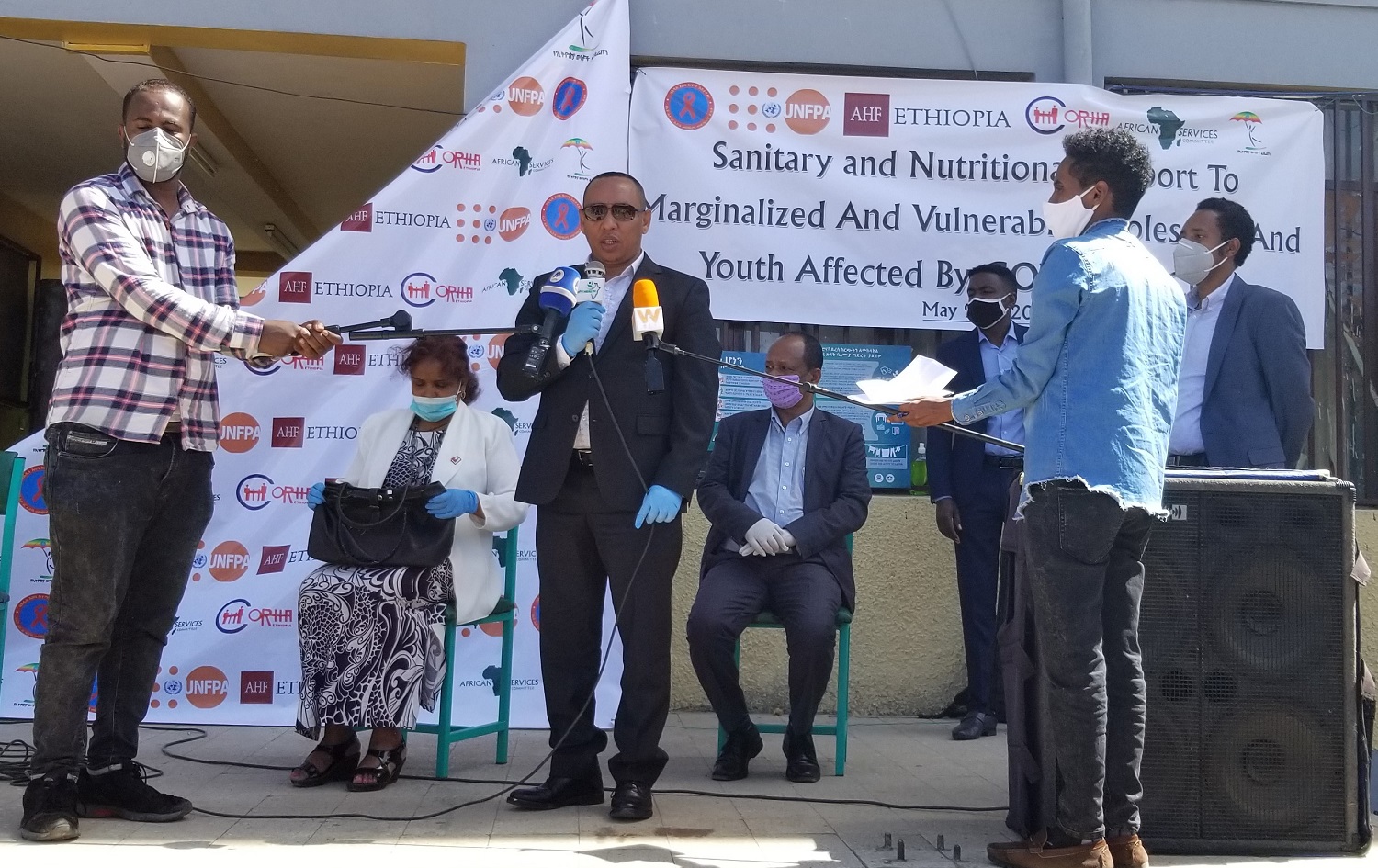
Handing over the PPE and some sanitary materials, Mr. Tesfaye Beljge, a senior official of the Addis Ababa City Administration, lauded the support and appreciated partners saying that the support will be very important in strengthening the COVID-19 response being channelled by his administration and other stakeholders. He added that the support provided today will motivate others to address the needs of such vulnerable and hard to reach sections of society.
The support that was provided today launched a 20-day mobilization campaign that will be undertaken in hot spot areas of Addis Ababa as a response to the COVID-19 pandemic mainly targeting vulnerable adolescents and young people. The mobilization campaign which will be conducted by the Ethiopian Youth Federation will sensitize adolescents and youth living with HIV to enable them protect themselves from COVID-19. An IEC material containing tailored messages to help adolescents and youth living with HIV to take the necessary precautionary measures to overcome COVID-19 and prevent unintended pregnancy and STIs has been developed to support the sensitization work.
As part of its 6-month COVID-19 pandemic response plan to address the needs of the most vulnerable adolescents and young people as well as women and girls UNFPA is providing technical guidance and coordinating with partners to distribute emergency reproductive health kits and PPE.
The response plan also prioritizes the protection of Ethiopia’s health workforce, the continuity of reproductive health care and supplies, and addresses the increase in women’s vulnerability to gender-based violence.
